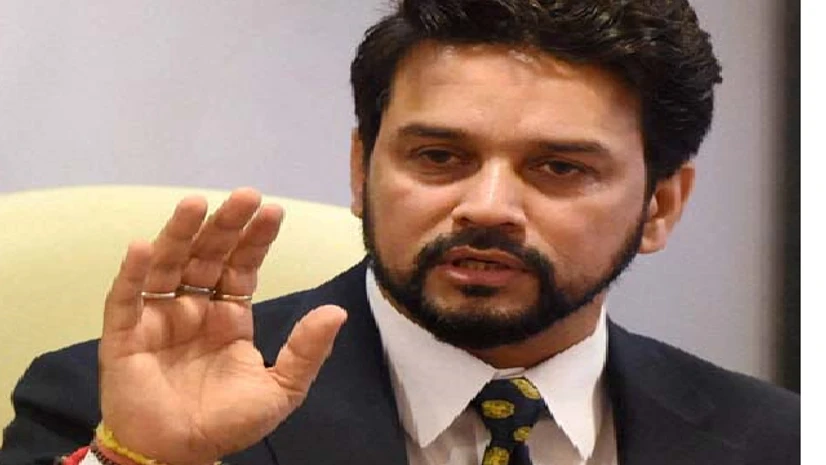There is a need to strengthen corporate governance and India Inc should look at adopting global best practices and benchmarks in the interest of consumers, Minister of State for Finance Anurag Thakur said on Thursday.
He also said the government led by Prime Minister Narendra Modi has taken several measures to improve the regulatory environment, including reduction in tax burden and compliance.
Reeling out some of the steps taken in the recent past, he said the government decriminalised the company law defaults, permitted shifting of compoundable offences to an in-house education mechanism and cleared 72 amendments to the Companies Act, 2013.
As a result, there has been withdrawal of 14,000 prosecutions under the Act.
Addressing a webinar organised by industry chamber Assocham, the minister said all these measures have been taken by the government as a step towards promoting good governance and ease of doing business which strengthens corporate governance.
"And why I am stressing on the corporate governance because what we have seen in last couple of decades, there is still a need to stress on the corporate governance audit and the role of various organisations to bring in more transparency and accountability at the same time effectiveness in the system," he said, without citing any cases.
In the recent past, there have been several instances of corporate governance failures, including Satyam Computer Services, IL&FS, DHFL and Jet Airways.
More From This Section
Thakur exhorted corporates to look at the best global practices and benchmarks, and adopt and adjust them for the benefit of Indian consumers.
"Let me say that good governance must be the industry led and industry driven and we must work together as equal partners in India's growth story," he added.
The minister also emphasised that even in these difficult times companies should not shy away from giving disclosures in order to protect the interest of investors.
"So companies that have adopted the high corporate governance standards should be comfortable to get a clean report from the auditor, and the National Financial Reporting Authority (NFRA) is committed to improve the auditing quality and auditing process," he said.
Speaking on the occasion, IBBI Chairperson M S Sahoo said the Insolvency and Bankruptcy Code (IBC) provides a new lifeline to rescue a company when it is in deep stress.
"The Code balances the interests of all stakeholders, including the government," he said.
The Insolvency and Bankruptcy Board of India (IBBI) is a key institution in implementation of the Code.
On the Emergency Credit Line Guarantee Scheme (ECLGS) for the MSME sector, Thakur said banks have sanctioned loans of about Rs 1,61,017 crore under the initiative.
Disbursements by banks, including 12 public sector and 24 private sector lenders, stood at Rs 1,13,713 lakh crore, he said.
The scheme is the biggest fiscal component of the Rs 20-lakh crore Aatmanirbhar Bharat Abhiyan package announced by Finance Minister Nirmala Sitharaman in May to mitigate the impact of COVID-19 pandemic by providing credit to different sectors, especially micro, small and medium enterprises (MSMEs).
(Only the headline and picture of this report may have been reworked by the Business Standard staff; the rest of the content is auto-generated from a syndicated feed.)

)
